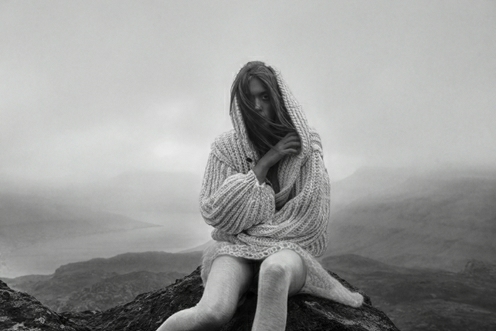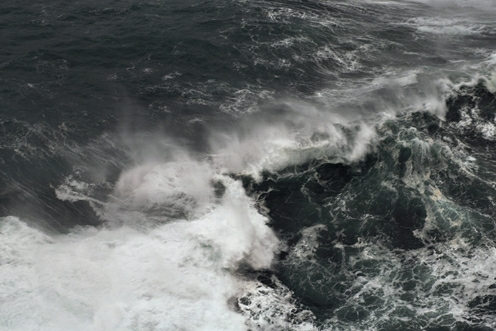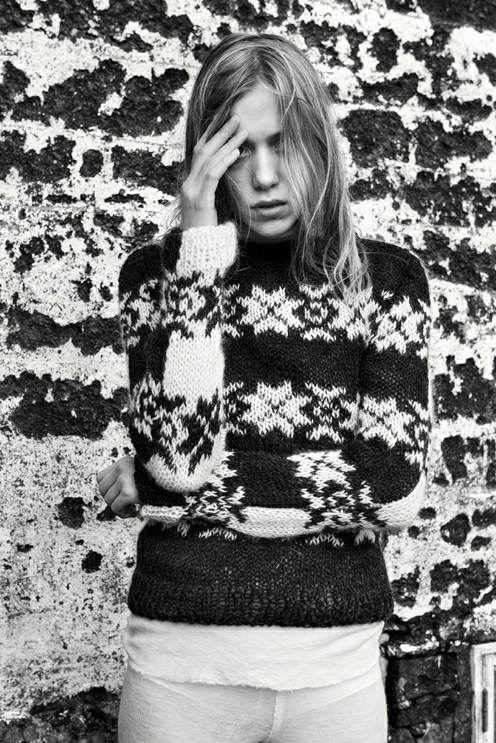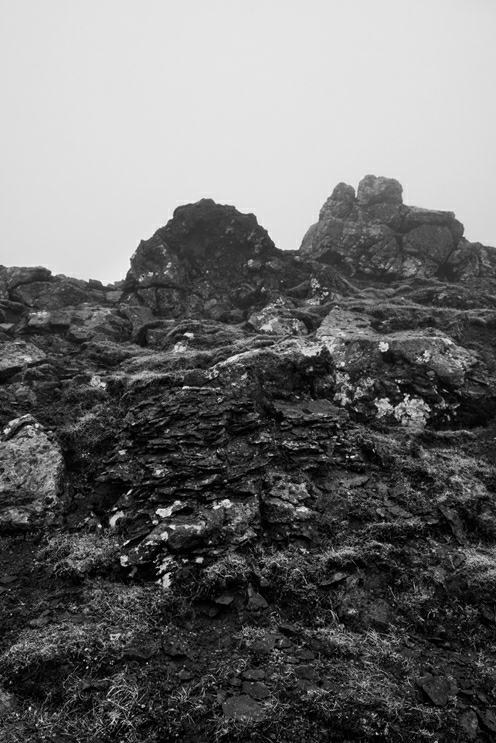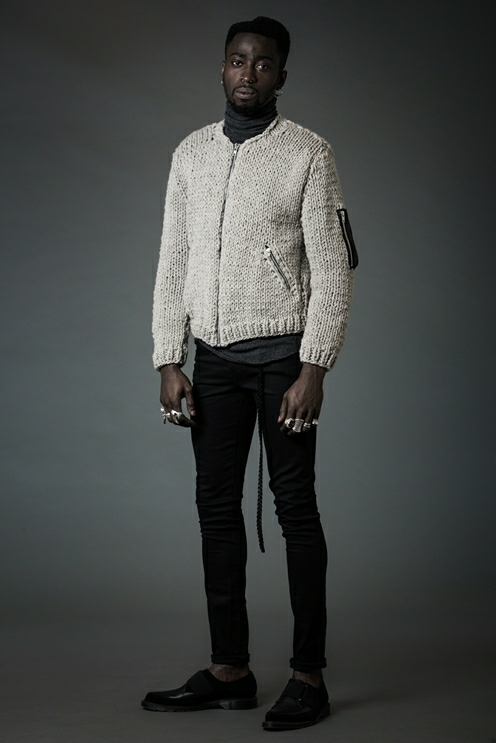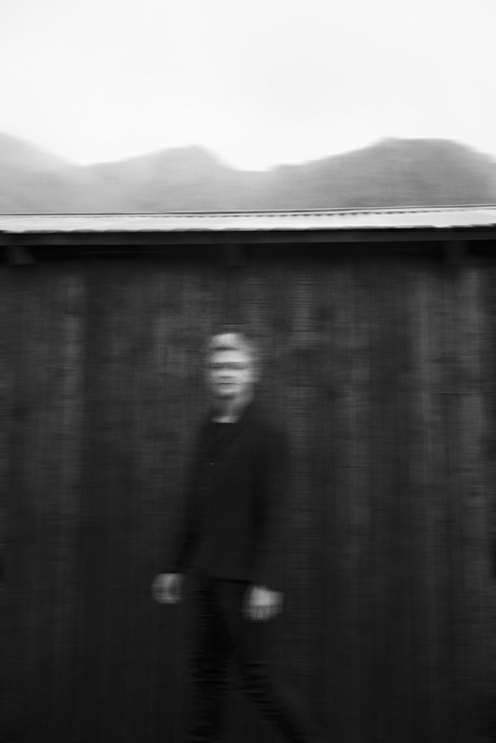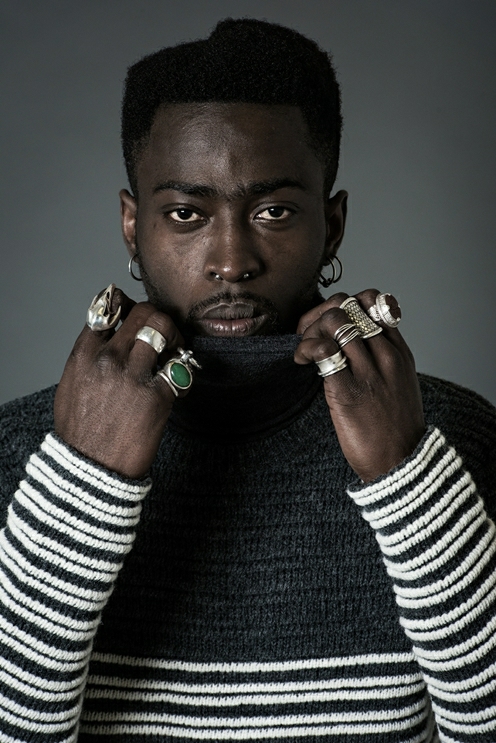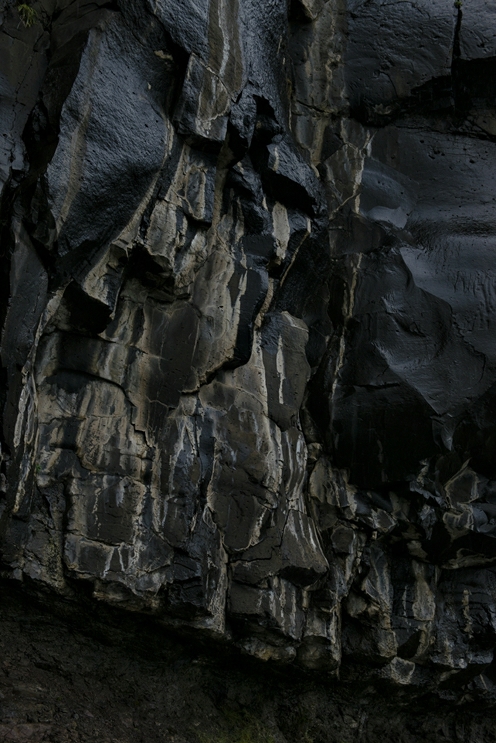Gudrun & Gudrun, bringing sustainability to life using Faroese wool and traditional knitting techniques, is a fashion-forward knitwear brand gaining momentum with its bold heritage. Emerging from the faraway Faroe Islands, the remoteness of the geographical location inspired Gudrun & Gudrun to use the island’s scarce wool resources wisely, not to let them fade away. Adding a touch of women’s empowerment led thinking and mind-blowing creativity to Gudrun’s journey is what makes the brand as powerful as it stands today. We also never knew knits assembled of natural wool could look so good.
What brought together Gudrun & Gudrun and sustainability?
We didn’t start as some brands might start today, saying ‘we are going to make a sustainable brand’. We just discovered that all the resources on the Faroe Islands [located halfway between Norway and Iceland] were very limited and used poorly. We discovered that we must take very good care of the scarce resources, like in the old days. It’s to do with the heritage of the place, nothing can grow and it is very remote, so we just had to use what the nature has to offer — we have wool, we have sheep and we have fish, that’s all we have here on the Faroe Islands. Sadly, in the rapidly growing economy of the 1990s people didn’t care too much about the natural resources and the local produce, but thought that everything imported from abroad was much more valuable. We came to a situation where most of the wool was burnt and lambskins were destroyed completely, because nobody wanted to use them. Whereas we felt really upset about it, because these were not the values we were brought up with, what we had learnt to do. Then we thought we should put an end to it somehow, sooner rather than later, that’s where it all started…
So you would say that the isolation of your geographical position, Faroe Islands, closely connects with the story of the brand?
It has a lot to do with being from the Faroe Islands and seeing the natural resources go to waste, seeing that they’re not being used properly.
I see more and more brands turning to sustainability. What’s the importance of it, why do we need to move away from the fast-everything culture and mass production?
I think the answer lies in people being more conscious and aware after the financial crisis that really had an effect on their consumption habits. Getting through that crisis, we have learned not to blame the ‘others, or the big ones or the global superpowers’, which were the attitudes flourishing for long, but we have understood that we ourselves are to blame, and we have to take collective responsibility for changing the detrimental patterns. We are all a part of the world, so we all have to play our part in being responsible and making a change.
Also, you have a special kidswear range, which many brands have not thought of, or find too difficult to run. How did you come to this idea? It looks so playful… full of colour.
We started with womenswear only, but often the customers would be like, ‘Awww, I want this type of quality for my child as well’, because we are only using natural materials, and organic yarns, and on top of that, we have the contemporary design and modern thinking. So we have combined everything that has to do with sustainability with the modern, creative side, which is really cherished with kidswear. When it comes to sustainable clothing, I think parents are thinking, first of all, about their babies, who would need the comfort — clothes that don’t do any harm to them. The combination of having the sustainability element and also the design, the aesthetics, is what makes our knits so unique and popular. Kidswear is not found everywhere, but people often look for the quality, the natural materials and longevity, but with that often comes a high price tag, and people refuse to pay for it. Often it is the same price producing a kid's sweater and sweaters for grown-ups, but people are still looking to pay half the price for it. So we have reversed it.
How does the sustainability aspect come across in the production phase and use of materials?
We always use only natural materials. For example, Faroese wool — the sheep are in the mountains all-year round, they are never kept inside, so they are living on natural, unfertilised grass. The wool is not eco-certified, but just made using common sense and highest quality technology. For it to be the best possible [quality] is more important for us than just having a certificate to say that it is sustainable and organic. In addition to Faroese wool, we also use yarn from a lot of other places — we produce in Peru, using Alpaca wool from Peru, because that also makes sense for us to use the material from the place we produce and we learn a lot of techniques from the Peruvians… then we use organic Merino wool, for example. In addition, we use yarn from a lot of different places, from Italy, Norway, Iceland and Japan. But we always use natural materials, that’s one of our principles.
"We could not change the fact that the women have a specific role in the family and home, but we could help to empower them by giving them the opportunity to earn their own money."
That must be complex to produce. How big is the workforce?
All in all, we have about 100 knitters, and they are divided more or less equally between Faroe Islands, Jordan and Peru.
There’s also a link between women’s empowerment and your brand… what countries is it related to?
We have a group of women knitting for us in Jordan and Peru. The project in Jordan was started, because before Gudrun & Gudrun I had a completely different career. I was working as a consultant stationed in Jordan, namely as a UE expert, and I always met a lot of ambitious people, and we were talking about the possibility of giving those women a way to earn their own money, because when we are talking about women’s empowerment, we believe that earning your own money is the base of this, the first step.
"There are a lot of other brands that are so much better at making cheap T-shirts, but it’s not our field of expertise, so it is better that you concentrate on what you are good at, what you truly believe in."
In Jordan, for example, which is a restricted, patriarchal society, for a lot of women, it is difficult to get acknowledged outside the boundaries of their own home, so they are deeply ingrained in the role that they have to take care of the home and their children, there’s no option of having a career. We found that it would be a very good way, if we could fulfil that gap that they too contribute to the society. We could not change the fact that the women have a specific role in the family and home, but we could help to empower them by giving them the opportunity to earn their own money. I have been working with projects a lot and simple projects are often good projects that help to benefit the women the most. Also, for the husbands, it is not a threatening project, because the dinner is still served at the same time and they are still home by the evening, so that structure works for everybody. If it’s a project that the men will oppose, then the women would participate for a few times, and then they would not be allowed anymore, because they cannot take this discussion of freedom at home with them. They meet us in a charity organisation and surprisingly, some women, who started already 8 years ago, are still working with us.
"Getting through that crisis, we have learned not to blame the ‘others, or the big ones or the global superpowers’, which were the attitudes flourishing for long, but we have understood that we ourselves are to blame, and we have to take collective responsibility for changing the detrimental patterns."
Do you boast a global audience?
We have a very global audience, from Japan to Italy to U.S. We have our flagship store in Faroe Islands and pop-up shop in London at the time, and last year we had pop-ups in Oslo and Copenhagen as well, and then we sell wholesale to a lot of different stores.
What’s your message, how to give quality production more visibility and reduce the mass-production mania?
As a first thing, this is what we are good at — we are good at making hand-knit collections. We don’t know any other companies that make full collections in hand-knit, as it's not a machine, it is extremely difficult to execute and control. Quality production from natural materials is something that we have expertise in. There are a lot of other brands that are so much better at making cheap T-shirts, but it’s not our field of expertise, so it is better that you concentrate on what you are good at, what you truly believe in.



